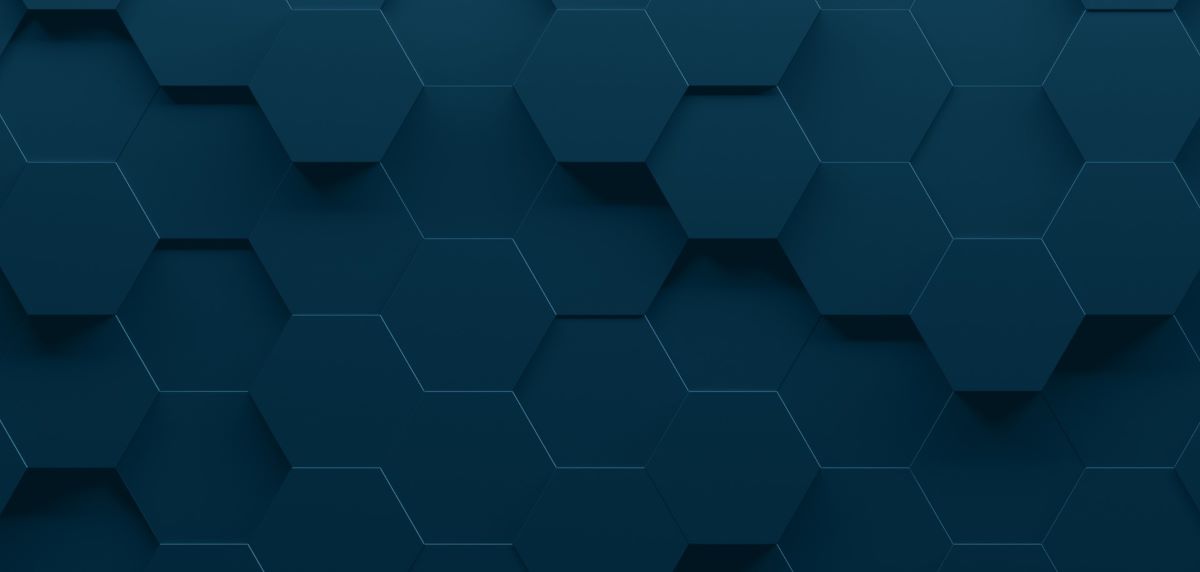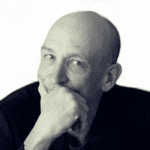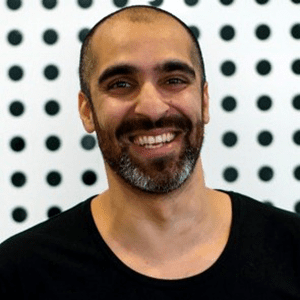

Intentional – great leaders build time into their day for learning
Gary Bertwistle has always had a passion for innovation and creativity. His career has spanned the retail, music, media, corporate education and radio industries.
Gary’s drive comes from having people and organisations think differently to generate new ways of doing things.
In this podcast Gary and Stephanie Christopher cover a lot of ground from podcast popularity – what’s changed to make Podcasting popularity; to great leaders building time into their day for learning; and challenging the existing business formulas and paradigms.
It’s all about being intentional, curious and ‘skill stacking!’
Stephanie: Hello and welcome to TEC Live. Stephanie Christopher here, Chief Executive of The Executive Connection. TEC connects CEOs, Executives, and Business Owners to the world’s largest business leader network. We’re committed to delivering actionable insights, accelerating business performance, and optimizing decision making.
Today I’m joined by Gary Bertwistle. Gary has always had a passion for innovation, creativity, and doing things differently. His career has spanned the retail, music, media, corporate education, and radio industries. Gary’s greatest desire comes from having people and organizations think differently to find new ways of doing things, to break the status quo and redesign the traditional formula.
As a thought leader in innovation and creativity, Gary has helped companies, teams, and individuals in companies of all sizes, in all industries and categories, to look at how they currently do things and address what needs to change in order for them to think differently and maximize their potential. He’s often called upon when companies or individuals lose their mojo. Gary Bertwistle, welcome.
Gary: Thank you.
Stephanie: Let’s talk about mojo. I know that you are the host of The MOJO Radio show. How did that come about?
Gary: If I go back six seasons, six years ago, I moved to the country to live on a farm. I bought a farm, my first farm. I was traveling backwards and forwards to Sydney to do gigs, speaking gigs. I’d be in the car for anytime, two and a half to three hours. I went through my country music album list and this is before Spotify and Apple Music so I ran out of music, so I only had stuff that I had on CD.
I’d been in podcasts, maybe I was doing them 10, 12, 15 years ago, but I loaded them up and no one listened to them, so I dumped them. But I always believed that it was going to be a fabulous medium because you could turn dead time into live time. I just believed that whether you’re at the gym, in the car, waiting for a bus, being kept waiting in reception, podcasts were gold because you could have all this time that you could use to learn and it was in your pocket.
I started doing them, no one listened, and I stopped doing it. Then, when I got sick of my music library I went back into it, but what I found was that too many podcasts had really bad production, where the host would be really loud but then when they got the guest, you couldn’t hear them. A lot of the podcasts had a very narrow band of content, so the content after you’d heard five or six shows, they’d run out of content based on their specific topic.
As great brands and great ideas start with you solve your own problem, so I rang Robbo who I used to work with in radio at Triple M back in the day. I said, “I’ve got an idea for a show where we do it around mojo, which allows us to do anything from inside and outside of work. It’s very wide. If we get great guests, ask them great questions,” and I’d always had a fascination about the interview process, and I’d always admired the craft of the interview. “Why don’t you produce something that sounds fantastic? We’ll make it very listenable, like a radio show, and put it together.”
Six seasons later – and we started just by me ringing up my mates like Matt Church and Andy May, and Tim Sharp and all the guys I knew from the speaking circuit and saying, “Look, do me a favor, come on.” It was pretty rough and ordinary – but then over the years we got better and better talent. The craft of interviews got better. Robbo’s production started to improve in terms of podcasting as opposed to just radio or television, and it’s going pretty good.
Stephanie: What’s changed that has made podcasts be so much more successful now than 15 years ago? Because they’ve really taken off, haven’t they?
Gary: Well this. I mean, sitting in a studio face-to-face with somebody, number one, the quality has gone up. Number two is now when you write to an author, if I’d have gone back three or four seasons ago, if Todd Herman had a brand new book out and I wrote to him, podcasts weren’t really a thing. But now in terms of the PR agencies and marketing agencies, they’re a thing. Now it’s not just television and press and magazines, now it’s, “What podcast can we get on in the world?”
The platforms, whether it be Samsung or Apple or whatever, have done a wonderful job of making it accessible. It’s in your pocket, so quality’s gone up, now you’re getting better talent, who see it as a way to sell their book. There are best selling books that have only been promoted through podcasts. You’ve got hosts that are now putting more work into it and it’s more accessible, and it’s always in your pocket. I think when you combine all those things, it just turns dead time into live time, and you can get the best of the best from around the world of people who are putting some serious time and are putting production together. It’s a no brainer.
Stephanie: Do you think it says something about time? You’ve talked about your own experience of this dead time of a long drive, and how you could really put that to use, whereas in the past, you might have, well you listened to music or it might have been the radio or what have you. Do you think there’s a shift now to people wanting to use time rather than waste it?
Gary: I think the word I’d use is people being more intentional.
Stephanie: Yeah, okay. I love that word.
Gary: I think people have always sat on buses, sat on trains. People have always sat in traffic, although it’s getting worse. People have always been left waiting in reception. Those things have always happened, but we’ve never been intentional with our time, but I think now there’s more focus on what do you want for your life? What do you want for your family? What’s really important to you? Because time hasn’t changed, it’s just the intention of how you use it.
One of the things you’ll find with great leaders today, whether it’d be a marketing brand or business in general, is people are very disciplined with their time and very intentional with their time. The great leaders will build time into their day for learning. Now, whether that be first thing in the morning, last thing at night perhaps, but it’s also even 10 minutes of learning of the best in the world you can get in your pocket between meetings, that’s a better use than scrolling through rubbish socials.
Stephanie: Yeah, okay. That’s good. One thing further that you just talked about that I loved was your fascination with the interview process. I come way, way, way back from a clinical background, and so interviewing was part of what I learned. I’m fascinated with it, too. So, tell me your view and how have you changed in your interviewing over six years?
Gary: It’s an interesting thing for people to think about, is that I think back to the fascination I had with the great interviewers. Like, sitting in front of Parky. David Letterman.
Stephanie: David Frost.
Gary: David Frost, or our own Andrew Denton, who are seen as being the great interviewers. I used to love, that was my favorite time, sit and listen to, even Ian Chappell or Max Walker, interview the great sportsman of the past, back in the Wide World of Sports on Channel Nine. I remember that time, I used to love that, I used to love reading about it and I used to love hearing the greats discuss their world in front of the camera and away from the camera.
I think that podcasting has given us the opportunity. So mastery itself is two parts to it as Michael Gervais from the Seattle Seahawks would say. It’s about mastery itself and mastery of craft. Mastery of self is about being intentional, the obsession with learning and so on, but the master of craft is what is at your very core that you love? What is it that you, when you’re in the midst of it, you lose track of time, you forget to eat, nothing else a priority? What’s that thing? And then mastering it.
I think for me, listening and observing the great interviewers, whether it be on television, the great, well scripted article in a magazine, or in a podcast, and then for me, it’s the constant improvement to say, “How do I get to that question that’s never been asked before?” My greatest joy, and I’ll do 6 to 10 hours research on a guest. My greatest joy is when I’ve never ever heard them say, “That’s a really good question.”
I had a girl, a sportswriter only yesterday on the show, and we were into the interview, and then I asked her a question, she said, “Great cue,” which is the hipster way of saying, “Great question,” which I love.
Stephanie: I’m going to start saying, as of now.
Gary: “Great cue.” It took a while to get to it, and I went, “That’s the moment for me.” That’s the craft of what can I ask this person that they haven’t been asked before? What’s really interesting is because podcasts are now such a thing, many guests will come on and the first 5 or 10 minutes, they’ve got completely rehearsed answers. It doesn’t really matter what you ask them, they’ve got their shtick. It’s getting that question that breaks them down, it’s almost like a horse where a horse drops down into a pace they can sustain, that bit where they’re racing hard, then the jockey finally gets the hype, and then they drop down into it.
You can hear an interview where they drop into a different cadence. For me, it’s that sort of intricacy that gives you the mastery of the craft of how do you take somebody? Suzi Quatro must have done 5-10,000 interviews and there was a moment during the show when she dropped down and she changed, and she went, “That’s a really good question. I’ve never been asked that before.”
Everything changed. The pace, her thoughts, suddenly she was with me as opposed to just, “Here’s another interview, I had one before him, I’ve got one after him.” It’s that moment. It’s studying that, Stephanie, to work out how do I get to that piece? It comes from the work you put in, the thought you put into it, the challenge to find that question that no one’s ever asked before.
I also keep a journal full of great questions. I’d hate to do the same questions every time I interview, but I’ve got, and it comes from the Tim Ferriss’ and Joe Rogans, and James Altuchers and whoever’s out there who I think, Jordan Harbinger, who are the great interviewers, is really not listening just for the content of what they’re drawing out of their guests, but also how they structure and ask the question.
Stephanie: I know that you know Mike Logan, and he has actually written a book on the questioning leader, and it’s all about the questions, asking questions and getting deeply into this. I’m listening to you and I’m thinking how well it relates to what we’re doing right now, how it relates to understanding a market, and as a leader, how well that can relate to understanding your people. So, I’ve got a cue for you, which-
Gary: Very hipster.
Stephanie: So hipster, it’s frightening.
Gary: I might be a tad old for this show.
Stephanie: My question is how do you relate what you’ve learned about interviewing and that continuous, I hate saying journey, that you’re on about improving your interviewing, how do you relate that then to a leader who’s looking at their market and how to approach marketing or getting cut through with their message to a market?
Gary: I blog through The Espresso, which is my blog for thinkers. Every week it goes out. I’m doing one, two, sometimes three interviews a week. I need a lot of content. The easiest way as a takeaway for any leader to start to think about this process is to become a journalist. From the minute I started doing it, I had to become a journalist, so every conversation I listen to, I’m listening for is there something in that, is there a learning for me? Could I use that? Is there an angle for that? Why is that person saying that? What’s behind that?
I’ve heard a couple of people say that now, what’s in that? The sad thing today is that most leaders aren’t curious. As Marcus Buckingham said on a show just last week, he said we are having conversations based around I.
Stephanie: Tell me more about that.
Gary: You talk, then I talk. You talk, then I talk. You talk, then I talk. If you don’t finish quick enough, I’ll talk over you. It’s just, “I saw this movie.” “Oh, well I saw this movie.” “I like that.” “Well, I like this.” “I saw this.” “I’m going on holidays here.” “Oh, well I went there.” It’s an exchange of I’s.
It’s the leader that is truly curious and David Letterman will do his interviews and not use a script. Antonio Banderas will sit down and he’ll say, “I believe you like motorbikes.” And he’ll say, “What sort of motorbike do you like?” And he’ll tell a story about the motorbike. He’ll say, “Where’s the greatest” … And he’ll go for 10 minutes on this show and not look down at a script, and just ask a question out the back of Antonio Banderas’ answer, and the whole question rolls into who knows where, because it’s all based upon your last answer.
Whereas leaders don’t do that with staff members. Leaders don’t do that with a customer or client. They exchange I’s. As soon as they say one, it’s like, “Well, we can help you with that because.” They don’t dig, dig, dig, dig. They don’t have the mind of a child that goes, “Why? Why? Why?” As Carlton said, “It’s not just what’s said. It’s also what’s not said.” What they say with their eyes. What was their body language telling you? What are they thinking that they didn’t say? That’s all the listening skills that goes with it.
And leaders aren’t curious, but when you become a journalist, you get the most insane content out of Uber drivers, out of a guy who works on a train platform. You learn more about why the train system doesn’t work from the guys working on a platform than you do by sitting in meetings and boardrooms and assuming you know what’s going on on the platform.
Stephanie: It’s about the assumption also, and that’s a great example, but that’s part of what happens in a conversation, isn’t it? In the I conversation, because someone says, “I think this,” so you immediately make an assumption about it rather than testing it or asking.
Gary: How often do we sit in a presentation, person presents for an hour, two hours, and you say, “Great, I’ve left some time for questions. What are your questions?” And there’s crickets.
Stephanie: Group diffusion of responsibility. If you’re in a group, you think it’s going to be someone else will do it.
Gary: It’s crickets. You can’t tell me that you were that good, that something didn’t provoke a thought in some way, of some aspect of some thing, yet they’ll walk out without asking the question. I’ll go, “Do I want to follow that leader into battle?” I go, “No,” but the leader that I know that I really respect and admire, the people who don’t know it all, they don’t want to talk about themselves, they don’t want to talk about their business. They want to know about you, and that’s a true conversation where you are sharing as opposed to I, I, I, I, I.
I would say the easiest, to answer your question, the easiest thing is become a journalist where all day long you need content, you need stuff, you need the next provoking thought and when you ask people open-ended questions like a journalist, you make them feel good. They like talking about their own world.
Stephanie: I think curious is a beautiful word. I’ve heard you talk about mojo marketing, putting those two words together. You have an incredible experience in marketing, and then mojo is one of the books you’ve written, your radio show. Tell me how those two go together.
Gary: It’s something I started doing over in Perth this week for one of the media companies. What occurs to me is there’s a new breed of leader coming through, and I wouldn’t even say that in their artillery, they would call it marketing. It’s just what they do. What I found was that when you dig into guys being WeWork and the Twitters, and the Ubers, and interesting new businesses-
Stephanie: Disruptive.
Gary: Disrupt the toothpaste industry, or people who disrupt the zero waste industry, social enterprise, when you go through all these people who are the disruptive ones, they don’t even really think about marketing. It’s more just how they think about life in general. Mojo as a term is about vitality and zest and pizazz that some people have, some brands have, that some don’t.
This new breed that are coming through and WeWork is a classic example. I’m a WeWorker, and I interviewed this girl from New York, this writer just recently, and she’s a WeWorker in New York. She loves it, I love it, yet they’re a $51 billion company and they’re 10 years old, because what they did is they took every single part of the co-working space idea, the collaborative working space that one old, stale, boring brand had, and said, “How do you disrupt each part of it?”
They didn’t set out to build a marketing model or a brand model, they just went, “There’s an opportunity. People have got these problems. Here’s what the future’s probably going to look like with digital nomads and isolation. How do we solve that problem?” The easiest way that I can define it for everybody is have you seen the movie Bohemian Rhapsody?
Stephanie: Yeah.
Gary: Okay. So, Freddie Mercury, Queen, insanely epic band of our lifetime. There’s a scene in that where Freddie walks into the EMI office, the EMI executive’s behind the door says, “You’re late.” He said, “What we really need here is another Killer Queen.” They want to do, “The last album was successful, we need a new album like that.” The band say, “We’re not making widgets here. We don’t want to repeat ourselves.”
Freddie puts on an opera album. They then talk about the fact that they’re going to do something differently and not repeat themselves, and in Freddie’s words, he says, “Formulas are a complete and utter waste of time.” The challenge today is that too many of us are stuck in the formula. That’s how the dairy industry does stuff, that’s how accountant practices do stuff, that’s how law practices do stuff, that’s how a club operates, that’s how we do things.
The people who are stuck in the formula will be stuck in the formula. This new breed are saying, “Let’s track the customer journey with us from the minute they think about us, the minute we’ve done the job, and follow-up.” Let’s track all that and say, “That’s typically how it’s done at a law firm. What if we didn’t? What if we took that part of our business to the opera?” As Freddie said, it’s still a rock album, darling. Make no mistake, it’s still a rock album, but he was able to shake it up and do a six minute song that’s become an anthem.
So, what I would say is the marketing mojo is actually how do you bring vitality and zest and pizazz to your own brand? How you do that is by breaking down and tracking the journey of a customer before they get to you, to when they leave, and saying, “If we did take it to the opera, tinkering idea right through to complete anarchy” and you can combine some of those things to make something new. The challenge today is we’re so busy, we’re not curious, we’re not sitting down to sit under a tree to go, “Let me just map that. What is the formula for our industry?”
Stephanie: Well, even more importantly, how about we start with the customer? Because I think there’s so much about execution on strategy and getting your process right and having your process right, having your protocols right, that I think can lead organizations to focus on themselves. “And this is how we do it, and here’s the process and the customer just has to align with the process.” What you’re talking about is actually simple but quite radical for a lot of leaders and organizations, isn’t it? To just forget about themselves and just look at the customer.
Gary: All great ideas, as it did with our show, starts with solving your own problem. Now, I wrote just recently on a brand new toothpaste called Bite, B-I-T-E, Bite Toothpaste. The lady said, “I’ve got a problem. When I looked at the container that my toothpaste came in, look at all the chemicals I’m putting in my mouth. Then when I finish, I throw that sucker out and it becomes waste.”
Two problems she said was it needs to be zero waste, and number two is why can’t I design a toothpaste that’s actually good for me and my family? And that’s what Bite is. It’s actually not even a paste. It’s a tablet. You put it in your mouth, you chew it a bit, you get a wet toothbrush, you make it into a paste and you clean your teeth, and it’s made of all natural products, including activated charcoal.
Comes in a glass jar with an aluminium lid. Everything’s zero waste, everything’s healthy. And you go, it’s a classic example that Colgate, Macleans, Sensodyne, are going to be disrupted by somebody who just went, “You know what? I’ve taken the time to solve the problem” and I guarantee within a year or two years, that concept will be on the shelf at our supermarkets, because they’ll just be fast followers, and they’ll try and then defend against, which is the marketing warfare part that fits with marketing mojo.
She’s not out to do the marketing bit, she’s just solving a problem that her family’s got. What happened was she designed it, showed it to her friends, her friends went, “That is so cool, how do we get some of that?” And that’s how the ideas start. But unless you take the formula of what’s typical that everyone’s playing by and saying, “If there was another way to do it, based on the problems that our target audience face,” and I’ve got faith that the kids coming through are going to help change this whole paradigm of, “Here’s the formula, it doesn’t change.”
The kid’s going, “Well, I’m not caught up in the same world you’re playing in” and a lot of people listening to this, the people who work for them right now will be the ones who will disrupt them. Because they’ll be taking the time to think. They’ll be intentional and sit down and say, “Yeah, that’s interesting. How would I go about doing that?” Because they’re the curious ones, they’re the ones that take time out to do it. They’re bullish, they’re not caught up in the same things that their parents and their grandparents were caught up in, the same formulas.
They dig Freddie Mercury, and that’s why marketing mojo now is changing. The other thing that’s really interesting that I think sits alongside that is, you’ve got to have the stimulation, and you’ve got to get outside your own category to get stimulation, to bring into your own brand and your own business. One of the things I believe we’re going to hear a lot more about is being a generalist and skill stacking, and podcasts, go back to where we started, to finish that loop, podcasts are wonderful because you can pick any topic and deep dive into it. Any topic.
They’re free, if you don’t like it, get rid of it, put another on. There’s hundreds of thousands of them out there. You could pick any topic, so I spoke to a graphic designer recently who’s learning photography, and she’s just started doing work in VR. She’s working with an aged care business where she has built a completely VR immersive thing, where people come in to check out their locations, can put on goggles and have a 360, full immersive thing in virtual reality.
I said, “How long?” She said, “Oh, I was just interested in it, so I started exploring with it. I found a company that could do it and I got them to teach me.” She’s stacking all these skills.
Stephanie: I love this idea about skill stacking. Can you tell me more about it? Just define what it is. I mean, you’ve given a great example, so tell me more about what it actually is, skill stacking.
Gary: This is rather than being a specialist, you become a generalist. Something David Epstein wrote about in his new book called Range which came out last week. Pat Flynn talked about it in How To Better At Almost Anything. These are fantastic books but it’s about the power of the generalist. The example that David Epstein talked about in Range is do you want to be Roger Federer or Tiger Woods? Tiger Woods did one sport and one sport only. It’s all he ever did, and we know what happened.
Roger Federer played 100 sports before he actually decided on tennis. So, you get this choice between, and now even Olympic athletes are being suggested you do a number of sports-
Stephanie: Ash Barty.
Gary: … before you choose the one you’re going to specialize in. There’s a whole bunch of science and research behind it. What it means in a business sense is we get really good at our craft but what we need to do is step outside and say, “What are the fringes?” Michelle Gibbings wrote about this in Career Leap. I said, “How do you future proof your career?” She said, “Study the fringes of where you’re at.”
Say, well in your industry, what are the things on the sidelines that are going to end up morphing into the same thing, and become not an expert in them, but become good enough, as David Epstein would say, 80% good to be a skill you can stack?
Two weeks ago, a former Navy SEAL named Jeff Nichols, now Jeff Nichols is one of the world’s great strength sports physiologists, so he studied sports physiology and he studied strength training. Navy SEAL, he knows about discipline, projects, purpose, knows all that part of it.
And then he’s also a scientist. He’s also studying physics. He’s also had severe depression, went to a dark place that none of us will ever want to go to, but when I talk to him and I said, “You’ve got all these skills you’re stacking on top of each other,” so when he works with an elite sportsman, “I feel what it’s like when you’re down, I’ve been in that place. Here’s the physics of why we do the exercise this way, and here’s the strength argument that says,” so he’s got all these things to call upon.
Apple Computers, Steve Jobs was a calligrapher. He learned about making things beautiful and doing it properly, things we’d never see from his dad who worked on cars. But he also knew social sciences and he was also a brand expert. He had all these things that was who designed them didn’t have, but Apple did because of Steve. When he didn’t know something, he’d say, “Let me bring an expert in so you can teach me how to do it, so you can stack that skill.”
The generalist thing is where you’ve got a leader who needs to know enough about where this new brand of leadership and marketing is going, someone who knows enough about the software that drives the computer systems, someone who knows enough about zero waste because they sit down and dig into it with their kid from school who teaches them about where the future is going, what are they learning and examples. Who are they following online that’s of interest?
You start to stack all these skills that help you be better at executing what you do, but also then allows you to say, “If we did do something differently, and we did map out that journey, the thing there, everyone does it that way, if we didn’t, because I saw something they’re doing at, how would we?” I think from a parents’ perspective, we want to raise generalists, and get kids to experience as much as we can, so at some point they can go, “Hey mom, hey dad,” whoever the partners are, “That’s what I want to dig into.”
Stephanie: That’s a very different paradigm, isn’t it? From what education has been and higher education has been. Because it’s all about narrowing down your diamond to, “I am going to be this,” which is very different from the whole idea about work to be done, isn’t it? From you are a this, therefore you do that.
Gary: Kids are getting through university based on watching YouTube clips. They can listen to podcasts. Any leader listening to this can say, “What’s the fringe? What’s something I’m interested or curious about?” You can jump online and download 10 podcasts and they could be 10 hours of great content. You don’t have to go and do anything else, but instead of spending your time on rubbish, dig into it and build this new stack, so that when someone comes to you, if you don’t know what’s right, you can’t tell what’s wrong.
You can learn all these new little bits and pieces which makes you a better problem solver, and it also makes you more interesting in conversations.
Stephanie: Absolutely. Some fantastic themes here. I love, we started off about being intentional, about use of time, and how there’s so much benefit for that for a leader, or for anyone actually, to be intentional. Curious was a word that came up, and being a journalist, I really like that. Think like a journalist. What actually is the story here? What’s the angle here? Which is good.
And finally, that skill stacking, I think there’s so much in that. It’s being intentional about your skill stacking, but acknowledging that’s what you’re doing and recognizing I guess the stack that you’re putting together and maybe seeing, “Where are my gaps?” Or, “What’s this looking like? Is there something else I could do here?” What an opportunity to speak to the master. We’ve talked about mastery, well that’s you, Gary Bertwistle. Thank you so much for your time today. Great to talk to you.
Gary: Pleasure.
Stephanie: That’s TEC Live for today. CEOs are in the business of making decisions and leadership is the art of execution. I’m Stephanie Christopher and look forward to talking to you next time.



